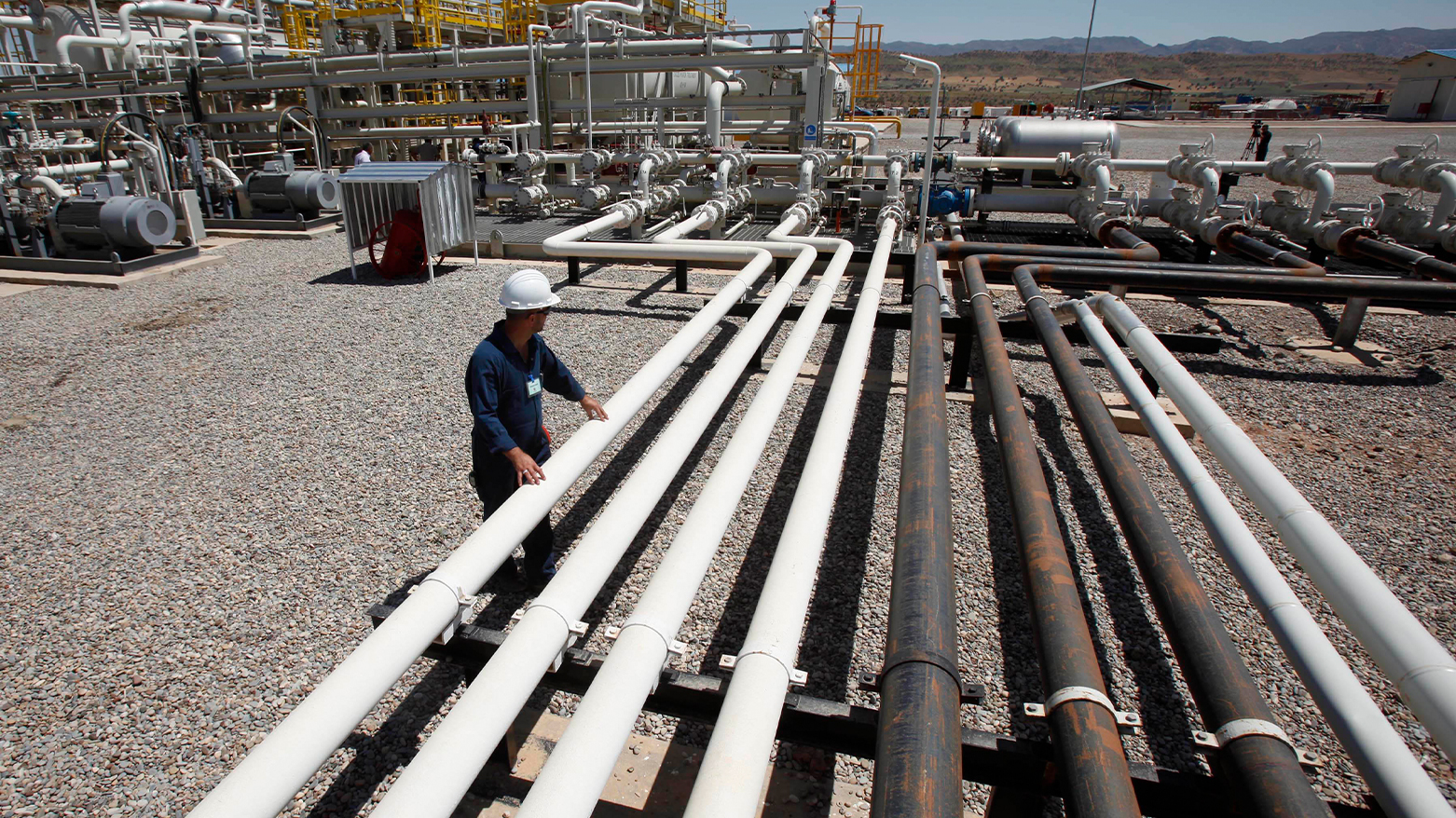Oil Exports Nearing Revival: Key Inspections Underway
Oil and Energy Committee member Sabah Subhi announced that a technical team from the Oil Ministry has been sent to Zakho to inspect the Khor Mor pipeline, which connects the Kurdistan Region to Turkey.

ERBIL (Kurdistan24) – In a bid to resolve long-standing disputes over oil contracts and exports, the Iraqi Federal Oil Ministry and the Kurdistan Regional Government’s (KRG) Ministry of Natural Resources are holding a crucial meeting on Tuesday in Baghdad. The discussions are expected to pave the way for new agreements that could shape the future of Kurdistan’s oil industry and its integration into Iraq’s broader energy framework.
The Iraqi Parliamentary Oil and Energy Committee confirmed the meeting, with committee member Sabah Subhi stating that the talks aim to address key contractual issues and ensure the development of Kurdistan’s oil fields in accordance with international best practices.
Subhi also revealed that a specialized technical team from the Oil Ministry has been dispatched to Zakho to inspect the Khor Mor pipeline, a critical infrastructure link between the Kurdistan Region and Turkish territory.
“This technical team is evaluating all pipelines connecting the Khor Mor field inside the Kurdistan Region to Turkish soil, ensuring that all aspects of oil transport infrastructure are aligned with federal oversight,” Subhi told Iraq’s state newspaper, as reported by Kurdistan24.
The Baghdad talks are set to address the contentious issue of oil contracts signed between the KRG and foreign firms, many of which have been at the center of legal and financial disputes between Erbil and Baghdad. The Iraqi Oil Ministry has extended invitations to foreign oil companies operating under the Association of the Petroleum Industry of Kurdistan (APIKUR) to join the discussions, signaling a potential effort to integrate these firms into Iraq’s national oil policy framework.
Baghdad and Erbil Reach Agreement on Ceyhan Pipeline
The ongoing negotiations follow a recent breakthrough in oil export talks. On February 26, Iraqi Oil Minister Hayan Abdul Ghani announced that Baghdad and Erbil had reached an agreement to resume crude exports via the Ceyhan pipeline in Turkey. This development comes after months of halted exports, significantly impacting Kurdistan’s oil revenues and straining relations between the regional and federal governments.
The agreement was facilitated by amendments to the Federal Budget Law, which the Iraqi Parliament approved on Feb. 2, 2025. These amendments, particularly modifications to Article 12, have created a framework for restarting Kurdistan’s oil exports while addressing the financial compensation mechanisms between the two governments.
New Mechanism for Oil Revenue Sharing
Ameen Rahim, Secretary of the KRG Council of Ministers, detailed the provisions of the revised budget law, emphasizing the structured mechanism to ensure financial stability in oil exports. The key aspects of the agreement include:
1- Compensation for Sovereign Expenses: The Iraqi Ministry of Finance will compensate the KRG for production and transportation costs associated with the oil volumes received by the State Organization for Marketing of Oil (SOMO) or the Federal Oil Ministry. An independent international advisory body will be appointed to determine fair production and transportation costs per oil field, with both governments jointly selecting this body. If disagreements arise, the Iraqi Council of Ministers will step in to appoint the advisory group.
2- Cost Calculation and Payment Structure: The advisory body will estimate the per-barrel production and transport costs and submit these figures to the Federal and KRG Oil Ministries, as well as the Iraqi Ministry of Finance. Compensation will be calculated accordingly, and the Finance Ministry will transfer these funds to the KRG Government to ensure uninterrupted oil production.
3- Immediate Oil Transfers and Financial Advances: As part of the agreement, Kurdistan’s produced oil will be transferred to SOMO or the Federal Oil Ministry for export, with the Iraqi Finance Ministry providing an advance payment of $16 per barrel to cover initial production and transportation costs. These payments will be reconciled based on the advisory body’s findings to ensure fairness and transparency.
A Step Toward Stability and Economic Integration
The latest developments mark a significant step toward stabilizing Iraq’s oil sector and fostering stronger economic ties between Baghdad and Erbil. The prolonged disputes over oil revenue allocation and contractual frameworks have been a major source of tension between the two governments, often resulting in budget shortfalls and uncertainty for international investors.
By aligning Kurdistan’s oil industry with international standards and ensuring a structured financial mechanism, both sides aim to create a more predictable and cooperative energy sector. The outcome of today’s discussions in Baghdad will be critical in determining whether this fragile progress can translate into a long-term resolution for Iraq’s oil sector.
As talks continue, the focus remains on ensuring fair revenue distribution, protecting investor interests, and fostering a sustainable oil export strategy that benefits the entire nation. The decisions reached in Baghdad today could define the trajectory of Iraq’s energy landscape in the coming years.